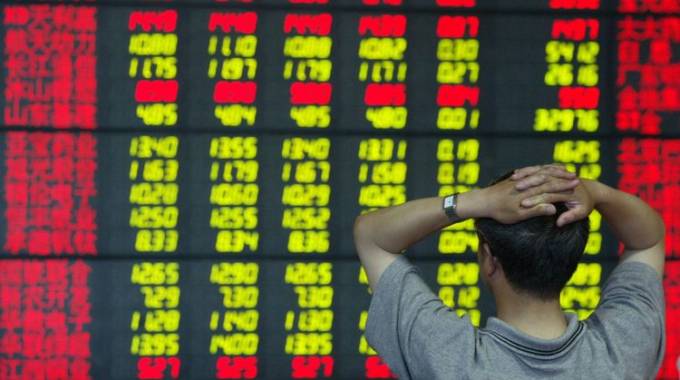China stocks fall as trade war escalates

By Samuel Shen and John Ruwitch
SHANGHAI. — Chinese stocks fell on Friday as US tariffs reignited fears of a global trade war, overshadowing the long-awaited inclusion of A-shares in MSCI Inc’s benchmark indexes which had been expected to trigger a surge of cash from foreign investors.
The addition was upstaged overnight after the US slapped tariffs on metal imports from major allies and several quickly retaliated, days ahead of a third round of trade talks between Washington and Beijing which were already looking rocky.
While fund managers’ strategies are hard to predict, many analysts had forecast inflows of $10 billion around the inclusion. But tepid interest on Thursday had hinted at a subdued initial reaction in the world’s second-largest equity market by capitalisation.
The Shanghai Composite Index started out flat but ended the day down 0,7 percent, while the benchmark CSI300 dropped 0,8 percent.
In Hong Kong, the Hang Seng China Enterprises Index, which tracks mainland shares, bounced between negative and positive territory to end the day up 0,4 percent. Hong Kong’s blue-chip index was little changed.
“There was a lot of media hype around the MSCI inclusion. Now it’s history,” said Wu Kan, head of equity trading at Shanshan Finance.
“Foreign institutional investors are very rational. They won’t just rush into China hot-headed,” he said, adding there were lingering concerns over creditworthiness of some China-listed companies, as well as Sino-U S trade relations.
Dealers said major global passive fund managers had already completed portfolio rebalancing on Thursday to avoid any deviations from the global benchmarks starting on Friday, robbing the market of some MSCI opening day momentum.
About a net $1 billion worth of funds flowed into mainland markets via the Hong Kong stock “connect” scheme on Thursday. On Friday, net northbound flows fell to about $355 million.
Some active funds have also been gradually raising their investment in Chinese shares over the past two months, anticipating an MSCI-related bounce in prices from June 1 and taking advantage of a drop in valuations. The SSEC has pulled back about 14 percent from its late January highs.
Opening to the world
On Friday, MSCI added 226 yuan-denominated mainland A-shares to its emerging markets index for the first time in a step toward deeper integration of China’s bourses with the rest of the world.
China’s securities regulator said it would use the inclusion as an opportunity to improve rules governing foreign investment in Chinese stocks.
Property shares were strong, while infrastructure shares slipped and banking stocks ended flat.
Lynda Zhou, portfolio manager of Fidelity International, said China’s recent crackdown on shadow banking benefits banking stocks by improving visibility of lenders’ assets.
She also prefers leading Chinese consumer companies, which will benefit from rising consumption, improving corporate efficiency and opportunities in international markets.
The Chinese shares added to MSCI’s emerging markets benchmark have a 2,5 percent partial inclusion factor. The second phase of the inclusion will take place on Sept. 3, raising the factor to 5 percent.— Reuters.











Comments